'State support is partnership, not takeover': Catholic Bishops' Conference & Christian Council on religious freedoms at missionary school
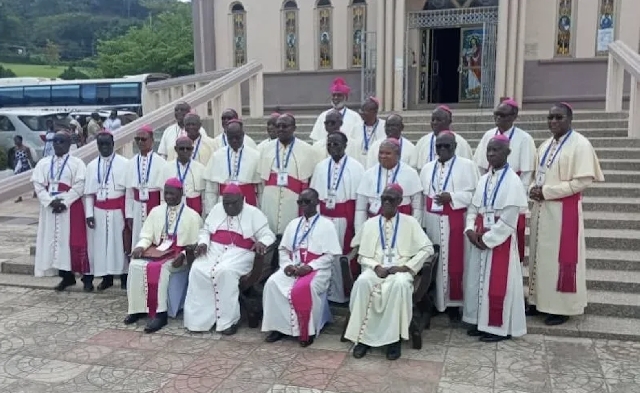 Bishops Conference and Christian Council
Bishops Conference and Christian Council
The Ghana Catholic Bishops' Conference & Christian Council of Ghana have shared their concensus on the ongoing debate over religious freedom in Christian-founded schools.
The church leaders explained that when they "we insist on maintaining the Christian identity, practices, and ethos of the schools we founded," they are not assuming a position "rooted in hostility towards other faiths, but in a desire to preserve the integrity of institutions we have built and nurtured for over a century - a mission that touches history, law, culture, educational philosophy, and the church's foundational role in Ghana".
Founders' Authority
The conference and council emphasised their rights to preserve the Christian identity and culture of missionary schools by highlighting their origins.
They said they founded, built and run the educational institutions successfully way before the founding of the nation Ghana, and "when the government began assisting us - primarily by paying teacher salaries and regulating curricula - it joined an already functioning system".
To the argument that missionary schools enjoying taxpayer funding should be operated like a secular or multi-faith entity, the church leaders stressed, "State support, therefore, is a partnership, not a takeover. The ownership and identity of these schools reside with us. Government assistance does not diminish this identity, nor does it confer the right to alter the core religious character that defines these institutions."
Students' Choice
The conference and council said the aforementioned was buttressed by "freedom of choice".
"No student is compelled to attend a Christian mission school. Parents choose our institutions freely, often because of their proven track record in academic excellence, discipline, and moral formation. They are aware from the outset that our schools operate within a Christian worldview, gather for Christian worship, and uphold Christian values. Because attendance is voluntary, it is unreasonable for anyone to demand that we change our core character to accommodate their religious preferences. Ghana offers many alternatives - fully public schools, Islamic schools, and private institutions - ensuring that the rights of non-Christian students are respected without requiring us to dilute our identity," they emphasised.
Religious Tolerance
The church leaders asserted the missionary schools demonstrated "respect for the rights of all students by welcoming those of other faiths whils upholding their freedom to choose schools that reflect their own beliefs.
"Our parallel duty is to safeguard the Christian identity, values, and practices that are the defining heart of our schools and have profoundly shaped Ghanaian society for generations," they stressed, however.
"Ultimately, defending this heritage is not an act of exclusion; it is a vital affirmation of religious freedom, institutional autonomy, and the enduring pursuit of educational excellence."
See the entire statement below:
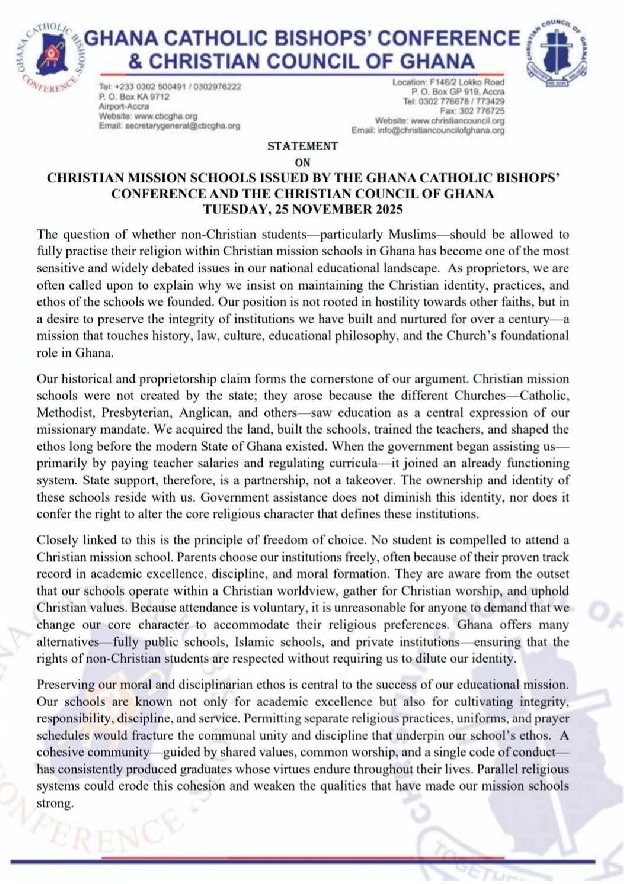
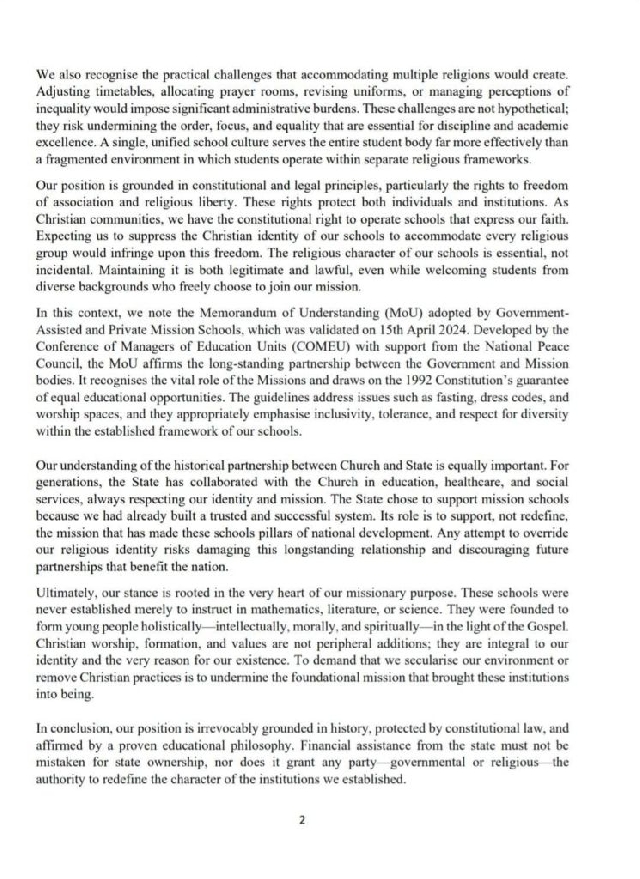

Religious tolerance in educational institutions has become a heated topic again, over an allegation that Wesley Girls' Senior High School was discriminating against Muslim students, keeping them from practising their faith while in school.
The case has been taken to the Supreme Court (SC), with the Attorney General and Minister for Justice Dominic Ayine defending Wesley Girls’ SHS. He filed a formal response to a lawsuit challenging what plaintiffs said was discriminatory religious practices at Wesley Girls’ Senior High School (SHS).
In the Shafic Osman vs Wesley Girls' Senior High School suit, filed on December 24, 2024, private legal practitioner Shafic Osman, challenged allegations that the reputable Cape Coast-based school was restricting Muslim students from practising their faith, citing students being barred from wearing hijabs, and fasting during Ramadan, among other things, fundamental to Islamic faith. Osman argued the school was denying Muslim students their constitutional rights of religious freedom, invoking the original jurisdiction of the Supreme Court under Articles 2(1)(b) and 130(1)(a) of the 1992 Constitution.
The attorney general said Wesley Girls' SHS policies were not contrary to the law. Dr Ayine noted the school was operated in line with Methodist beliefs, founded and operated by the Methodist Church of Ghana. He said the school was right to protect its legacy and culture, even when they did not exactly agree with the divergent religious faiths of students.
Source: classfmonline.com
Trending News

'State support is partnership, not takeover': Catholic Bishops' Conference & Christian Council on religious freedoms at missionary school
00:22
Minority Caucus rejects court ruling nullifying Kpandai parliamentary election
06:50
MFWA's Sulemana Braimah criticises police for arresting blogger over ‘false news’
12:32
Islamic SHS: Boys Prefect Abass fatally falls from storey building
11:13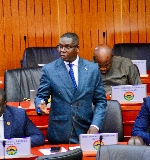
You handed over a ‘junk’ economy to us — Felix Kwakye Ofosu to Minority
09:37
Gov’t appeals to CETAG to call off strike
21:11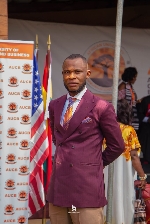
Samuel Huntor graduates with Second Class Upper honours
06:21
Speaker of Parliament renews call for comprehensive constitutional rewrite
12:19
Gender Minister Momo Lartey assures Ofankor domestic violence victim of support for she and her 2 children
11:02
Ghana shines at Africa Tourism Awards as “December in Ghana” wins best promotion initiative
10:24




